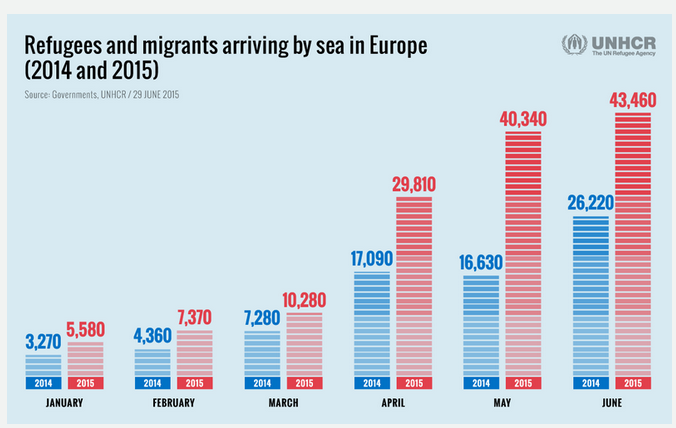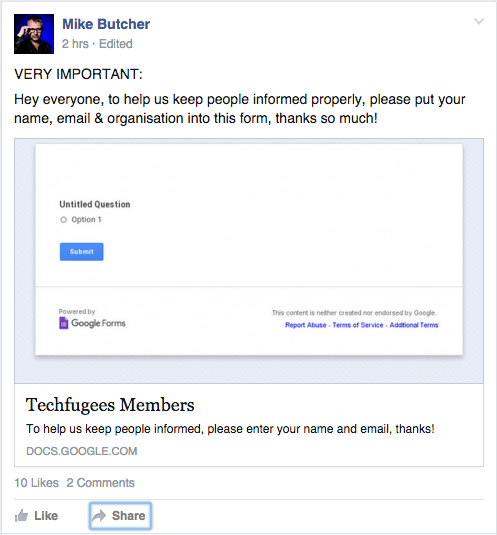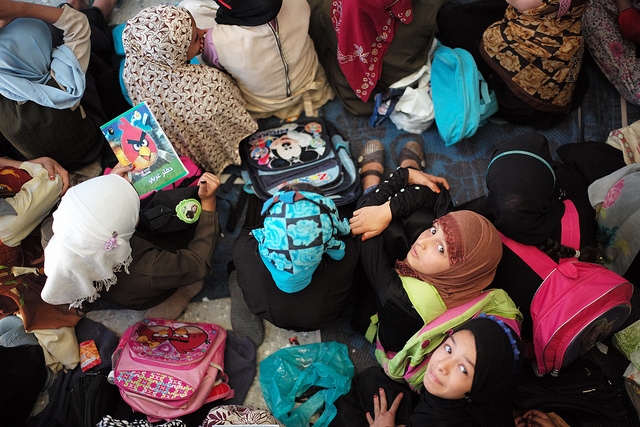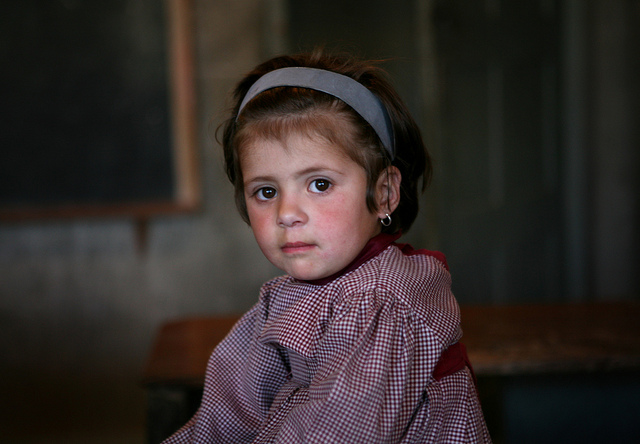5 "Techfugee" Solutions to Tackle the Refugee Crisis

Photo courtesy of Kirsten/flickr.
In late June, human rights powerhouse Amnesty International released a shocking report quantifying the magnitude of the refugee crisis: With 73 million people desperately fleeing their homes, the world is facing the largest refugee crisis since World War II. Despite calls to action by major government leaders and waves of supporters, nations with the means to welcome displaced people from Syria, Afghanistan, Somalia and other conflict zones have left these refugees adrift. It was only until heartbreaking photos of Syrian toddler Aylan Kurdi lying facedown on a Turkish beach and four-year-old Abdelillah, slung over her father’s back as he sold pens on the streets in Beirut, surfaced on the internet before these governments began to commit to more sweeping action.

Now, TechCrunch Editor Mike Butcher is calling on tech companies (nicknamed “techfugees”) to propose their own solutions for the refugee crisis. “Techfugees is a way for tech people to interact with this urgent crisis,” writes Butcher in his Facebook callout for submissions. “Please post projects, products, hackathons, events, etc. relevant to the topic.”

“I think this is a brilliant initiative,” wrote Tom Fletcher, GBC-Education’s new Director for Global Strategy and former British Ambassador to Lebanon, in a statement. “I’ve seen close up the scale of the challenge, but also the determination of Syrians to get through it. I’ve also seen the limits of what the current international humanitarian system — governments, UN, NGOs — can deliver, however hard we try. I’m convinced that business, especially tech companies, can provide a huge part of the solution.”
To respond directly to Butcher’s Facebook callout, follow this link.
In the spirit of this “techfugee” call to action, GBC-Education highlighted five innovators who are working together to create meaningful impact for refugees:
1. UK Lebanon Tech Hub

Photo courtesy of Julien Harneis/flickr.
Sometimes the greatest, most impactful ideas sprout from the newest entrants to the field. Innovation hubs like the UK Lebanon Tech Hub act as breeding grounds for these burgeoning entrepreneurs, supporting them financially through partnerships, and often technologically, with the expertise of professionals already in the sector.
2. StartUpBoat

Photo courtesy of DFID/flickr.
In response to the refugee crisis and the flood of migrants racing across European waters in treacherous conditions, Berlin entrepreneur Paula Schwarz launched StartUpBoat this past summer. Schwarz brought startup innovators from Germany, Greece, and South Africa and representatives from Facebook, McKinsey, and Lufthansa Innovation Hub on board (literally — they’re headquartered on a ship). Their goal: to envision solutions for irregular migrants in Greece, many of whom arrive from Syria. Stay tuned for their upcoming website launch, First-contact, which will help integrate migrants arriving on Samos.
3. REFUNITE
Photo courtesy of Hashoo Foundation USA/flickr.
As upwards of 4 million Syrian refugees spill into neighboring countries, families are fractured and contact is lost. As StartUpBoat’s Paula Schwarz discovered, many refugees retain cellphones along their journeys and can access mobile apps to register their status and location on databases like REFUNITE. Accessible via mobile devices, computers, or through a free hotline, the nonprofit REFUNITE partnered up with mobile network operator, Ericsson, and the United Nations, to build out an anonymous database (405,000 users large and growing) to help refugees locate and reunite with their loved ones.
4. RapidFTR
Photo courtesy of Hashoo Foundation USA/flickr.
UNICEF’s RapidFTR, an open-source, data-collection mobile app that builds off RapidSMS, their birth-registration model, also helps reunite families; both helped win UNICEF a spot in Fast Company’s World’s Top 10 Most Innovative Companies in 2014. Also noteworthy is UNHCR and UPS’s ReliefLink mobile tracking system which helps coordinate aid (like blankets and cooking utensils) for refugees, regardless of their family’s status.
5. Ideas Box
Photo courtesy of Hashoo Foundation USA/flickr.
In the wake of disasters, libraries are difficult to rebuild. Not only are books impossible to replace, but access to internet and power may be disrupted, if at all intact. Packaging the equivalent of a small-town library on two standard shipping pallets, the Ideas Box brings a customized portable “library” to communities, right down to books, laptops, tables, and chairs. The toolkit was the result of a partnership between Libraries Without Borders, UNHCR and designer Philippe Starck to help provide information and professional training to refugees in addition to much needed hope.
As for where business can go next–solutions for refugees often leave out the ingenuity and first-hand knowledge of the refugees themselves. There are innumerable opportunities to harness the potential of refugee populations, and businesses can help facilitate and accelerate these solutions.



